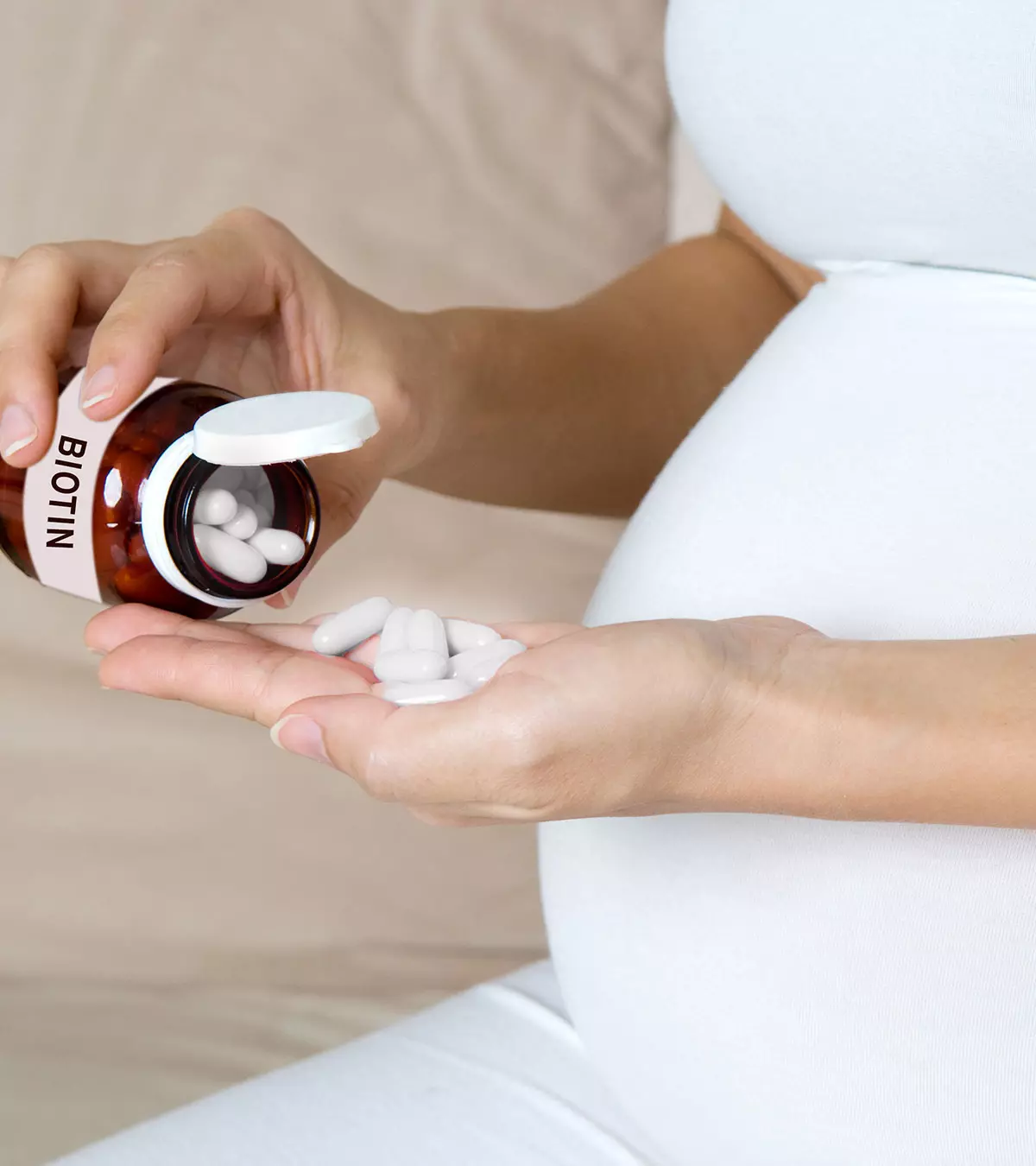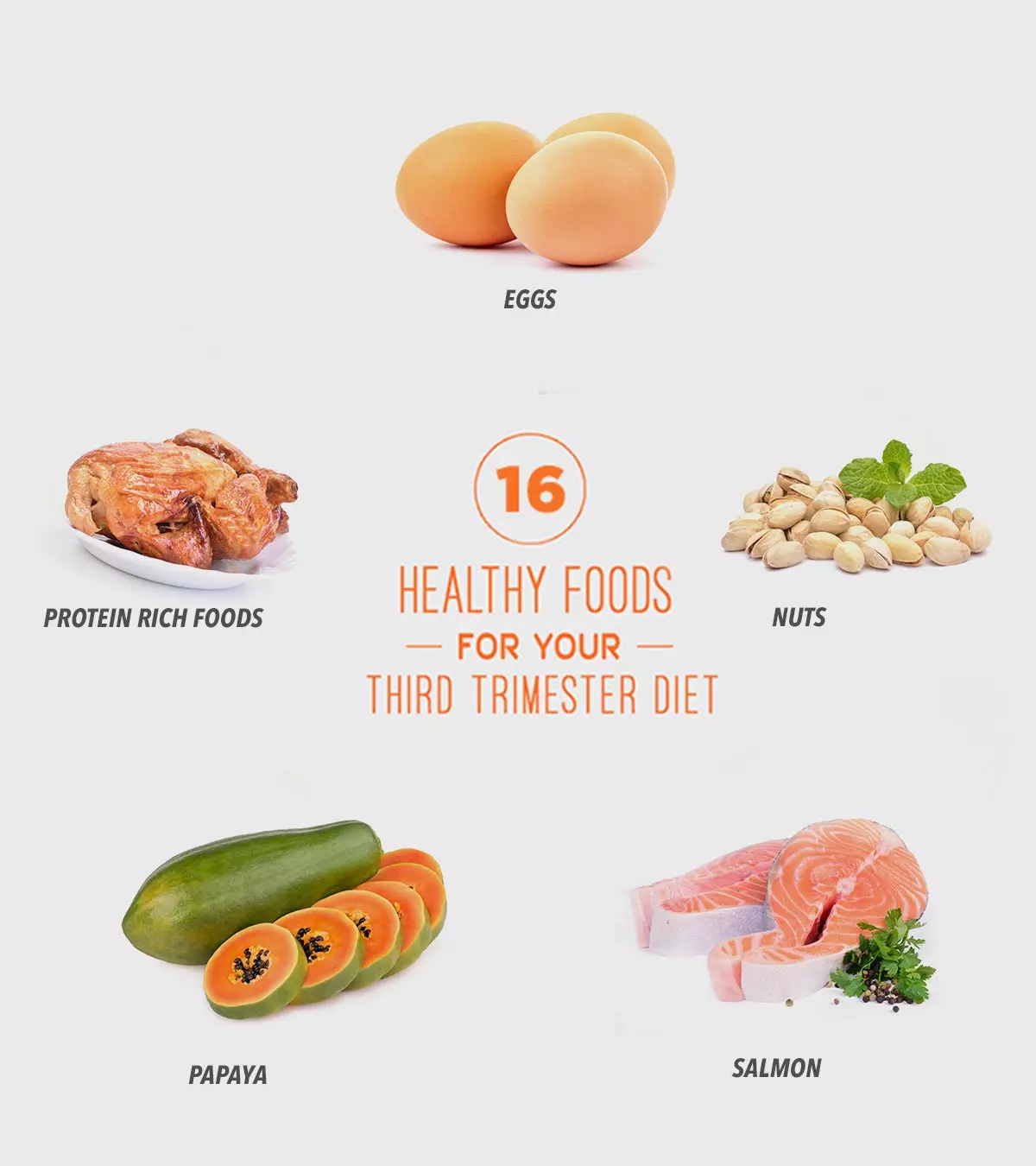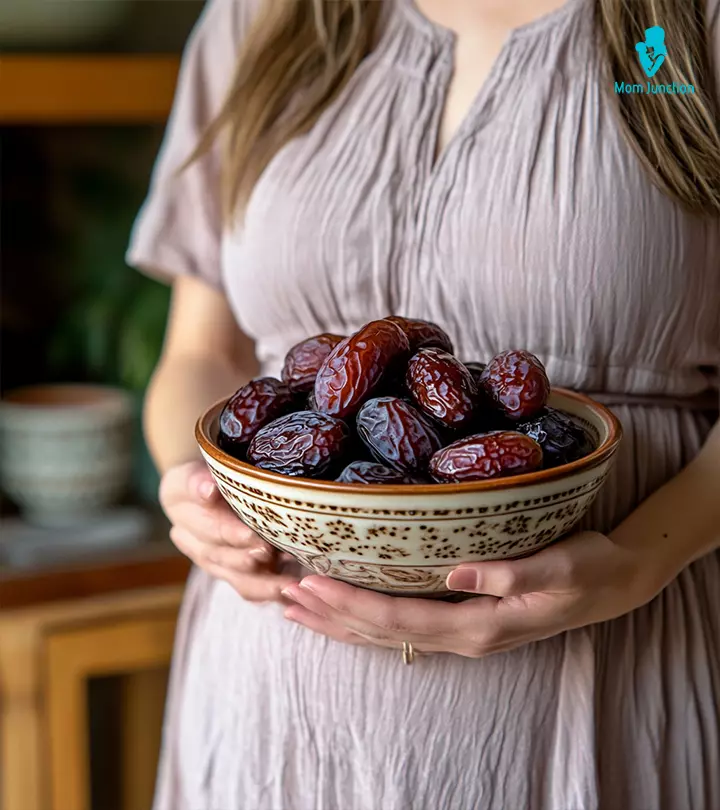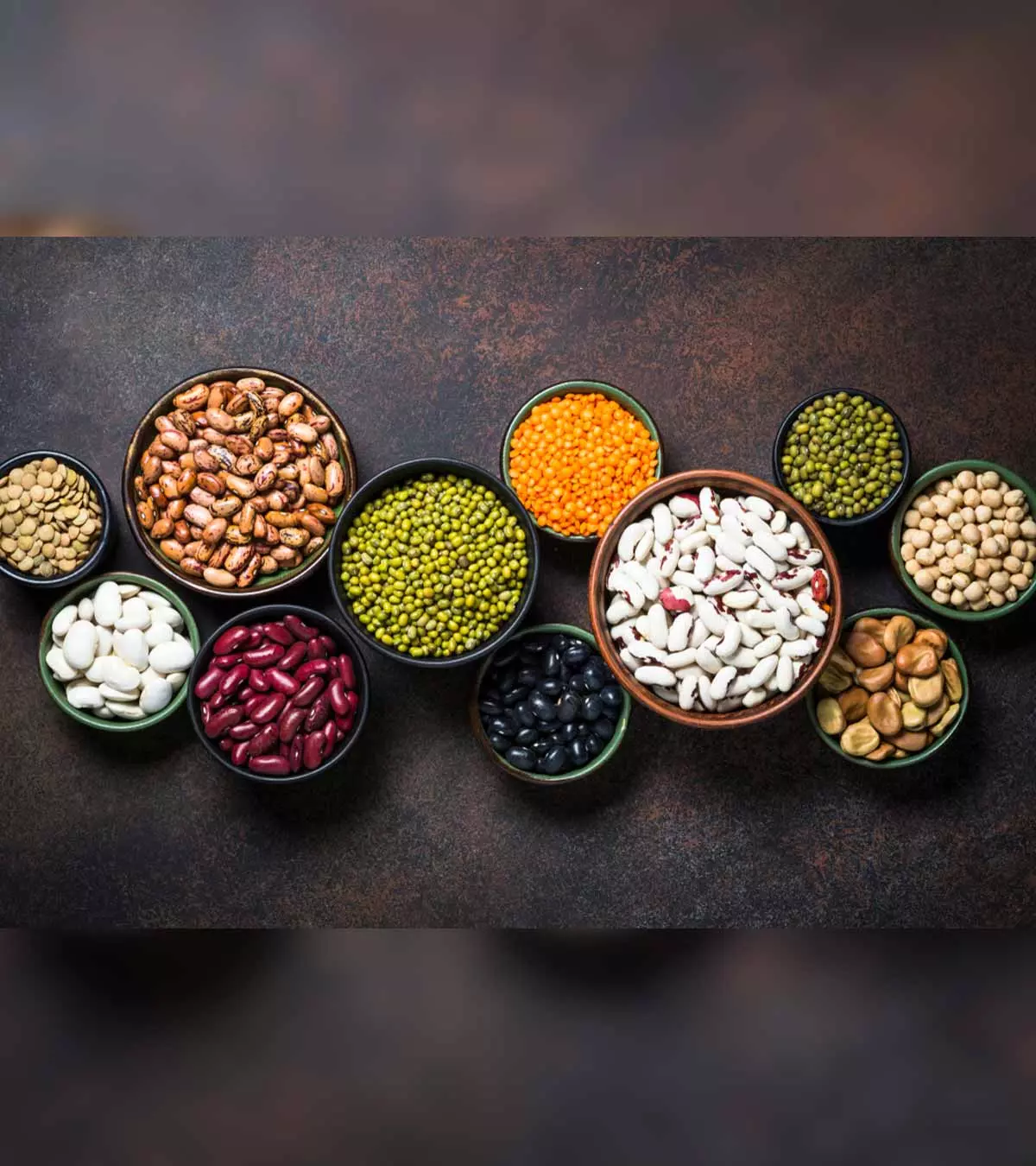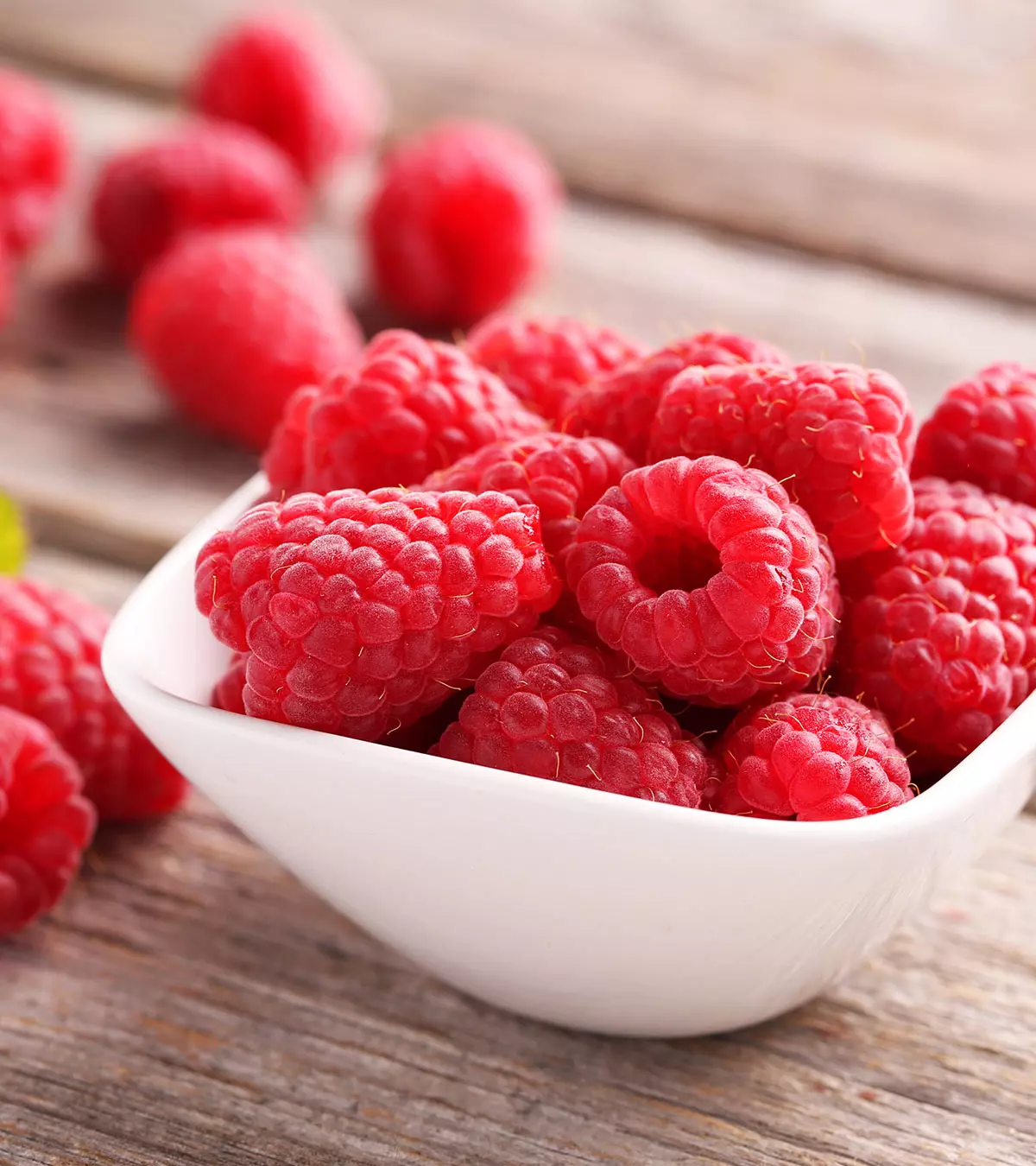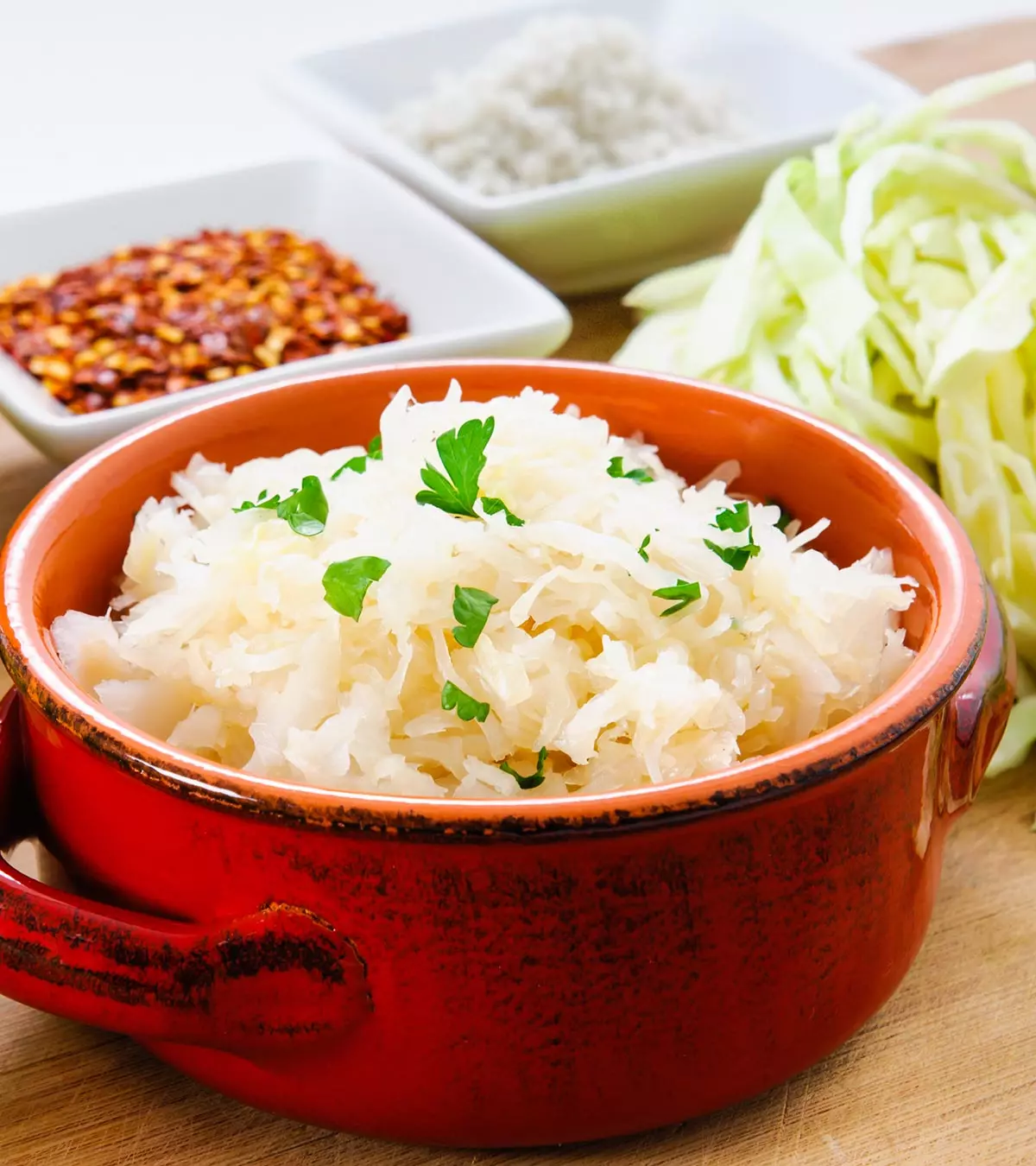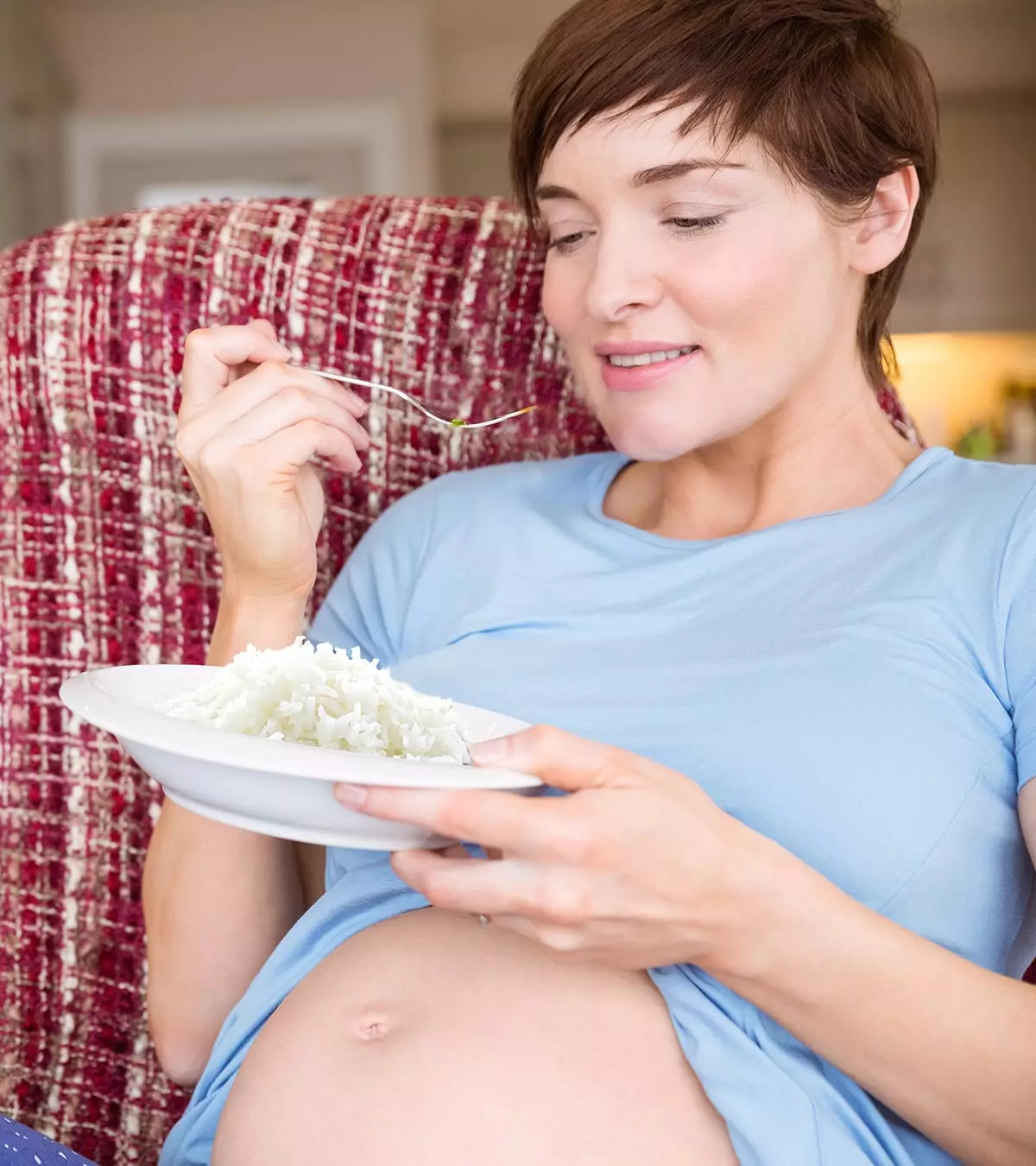
Rice is a staple food in many cultures. However, many expectant mothers might frequently ask themselves if it is safe to have rice during pregnancy.
The good news is that you can have either brown rice or white rice and not be worried. Brown rice is a rich source of magnesium and nutrients that help in neurotransmissioniNatural substances that allow neurons all through the body to communicate with one another . Thus, it helps improve the developing baby’s brain and other cognitive functions.
However, having an excessive amount of rice might increase the risk of weight gain and cause complications during pregnancy. Read on to know more about the benefits and side effects of having rice while pregnant.
Key Pointers
- Rice is rich in carbohydrates, fiber, vitamins, and minerals, which support bone health and prevent constipation.
- Rice is a natural diuretic that promotes brain growth, boosts immunity, and helps regulate blood sugar levels.
- For expectant mothers, brown rice is a healthier option than white rice because it has more fiber and a lower glycemic index.
- Overconsumption of rice may lead to weight gain, gestational diabetes, and urogenital infections.
- Arsenic, which is present in rice, may increase the risk of premature death.
Nutritional Value of Rice
The following table depicts the detailed nutritional value of both cooked brown and white rice as per the data from the US Department of Agriculture Food Data Central (USDA) ( 1 ) ( 2 ).
| Name | Brown Rice (Cooked With Iodized Table Salt) | White Rice (Cooked With Iodized Table Salt) |
|---|---|---|
| Energy (Kcal) | 122 | 129 |
| Protein (g) | 2.73 | 2.67 |
| Carbohydrate, by difference (g) | 25.4 | 28 |
| Fiber, total dietary (g) | 1.6 | 0.4 |
| Calcium, Ca (mg) | 3 | 10 |
| Magnesium, Mg (mg) | 39 | 12 |
| Phosphorus, P (mg) | 102 | 43 |
| Potassium, K (mg) | 86 | 35 |
| Sodium, Na (mg) | 202 | 245 |
| Selenium, Se (µg) | 5.8 | 7.5 |
| Thiamin (mg) | 0.177 | 0.162 |
| Niacin (mg) | 2.55 | 1.47 |
| Folate, total (µg) | 9 | 58 |
| Vitamin B-6 (mg) | 0.122 | 0.092 |
| Choline, total (mg) | 9.2 | 2.1 |
Benefits Of Eating Rice During Pregnancy
1. Provides instant energy

Image: Shutterstock
Rice contains high amounts of carbohydrates that energize your body immediately. So, rice acts as a fuel to keep you energetic and active when you are expecting (3).
2. Strengthens bones
Rice is a rich source of vitamins, such as vitamin D, riboflaviniA form of vitamin B found in foods, including milk, eggs, liver, and green vegetables , and thiamine
. Also, rice contains plenty of minerals, and is a calcium, fiber, and iron-rich food. So consuming rice during pregnancy ensures you have strong bones and teeth.
3. Prevents constipation

Image: Shutterstock
Rice contains ample resistant starch that affects the bowel. It promotes the growth of beneficial bacteria for smooth and normal digestion by regulating bowel movements in pregnancy. Thus, it prevents the health issues, such as constipation and hemorrhageiLoss of blood caused by a broken blood vessel , while you are expecting.
4. Prevents risk of urino-genital infections
Urinogenital’s infections can adversely affect you and your baby. Rice is a natural diureticiA medication that helps eliminate excess fluid and salt from the body , which helps prevent the risk of urogenital infections in expecting moms. Consuming rice during pregnancy keeps you and your baby safe.
5. Promotes brain development
Brown rice is a nutrient-rich food with neurotransmitter properties. Eating rice in pregnancy helps improve brain development and cognitive function.
6. Boosts immunity
Rice contains antioxidants that are beneficial for expecting mothers. These antioxidants enhance the immune system and lower the chances of infections (4) A study published in the journal Foods (Basel, Switzerland) found that brown rice has significantly more antioxidant strength than white rice – about 1.36 to 1.77 times higher. This means that brown rice has approximately 25.61% greater antioxidant potential. Therefore, including brown rice in an expecting mother’s diet can provide important benefits.
7. Regulates blood glucose levels

Image: Shutterstock
Brown rice contains large amounts of insoluble fibers and is a low glycemic index food. Thus, brown rice regulates your blood sugar in pregnancy. Eating brown rice during pregnancy also helps mitigate gestational diabetes.
Sarah Whipkey, a Greater Houston-based registered dietitian nutritionist, specializing in plant-based nutrition, says, “Whole grain varieties such as brown, red, and black rice are the best choices when pregnant. White rice has had the majority of its fiber and B vitamins removed. While B vitamins are added back through enrichment, white rice also has a higher glycemic index. This means it has a greater effect on your blood sugar and may not be the best choice for pregnant women who have or are at risk of gestational diabetes.”
8. Eliminates cholesterol problems
Rice is a cholesterol and gluten-free food. So including rice in your diet during pregnancy helps balance your diet and keeps you safe from cholesterol issues.
9. Supports healthy weight management
The anti-obesity properties of brown rice can help manage weight gain during pregnancy. It is also rich in fiber, B vitamins, and essential minerals like iron, which support a healthy pregnancy (12). However, consuming excess rice may not be advisable.
Side Effects Of Eating Rice When Pregnant

Image: Shutterstock
Despite the numerous benefits of eating rice during pregnancy, there are a few risks that come along. Here we list some of these risks:
- Excess consumption of rice during pregnancy adds more pounds to your existing weight, and you become obeseiAn adult with a BMI of 30 or more .
- White rice possesses a higher glycemic index (GI) than brown rice. White rice can boost your blood glucose levels and may cause gestational diabetes. However, basmati rice (slender aromatic rice) is low GI and is a good option for controlling gestational diabetes.
- Research reveals that rice contains a substantial amount of arsenic that may lead to premature death or birth of a stillborniThe death or loss of a baby before or during birth baby. Therefore, you should avoid excessive intake of rice. According to the FDA, cooking rice in excess water (six to ten parts water with one part rice) and draining the excess water after cooking can reduce the inorganic arsenic content around 40-60% depending on the type of rice. However, doing so may remove some key nutrients, particularly folate, iron, niacin, and thiaminiA type of B vitamin that helps the body convert carbohydrates into energy .
 Quick tip
Quick tip- Also, note that cooked and cooled rice left at room temperature may contain spores that can grow bacteria, leading to food poisoning. If you reheat rice, ensure it is stored in the refrigerator and is heated thoroughly.
Whipkey suggests, “Microwaved rice is safe during pregnancy. Just be sure to finish it in one sitting or appropriately cool it for storage. Uncooked rice can contain bacteria spores that can survive cooking. If rice is left standing at room temperature, these spores will grow bacteria, multiply, and cause food poisoning ranging from mild to lethal.”
- Rice contains high levels of sodium and can cause your blood pressure to rise, increasing the risk of pre-eclampsia. If you are pregnant, avoid eating rice altogether. Instead, eat other low-sodium foods like beans, lentils, and potatoes.
A Word Of Caution
Consult your physician to understand the appropriate quantity of rice to eat. Sometimes, pregnant women have cravings for raw rice. Resist the urge, as uncooked rice could contain pesticides and chemicals that are unsafe for you and the baby. Stick to cooked rice.
Tell us about your experiences! Leave a comment below.
Frequently Asked Questions
1. How much rice can I eat during pregnancy?
Pregnant women should eat 6 to 11 servings of grains per day, depending on their weight and dietary needs (5). One serving of whole grains approximately equals half-a-cup cooked rice (6). Thus, pregnant women can eat half- to one-cup cooked rice per day. However, this amount isn’t fixed. You should consult a nutritionist to know how much rice you can eat according to your dietary needs.
2. What type of rice is good during pregnancy?
Whole grains, such as brown rice, red rice, and wild rice, comprise three edible layers – the germ, bran, and endosperm. Bran mainly consists of fiber, antioxidants, and B vitamins, whereas germ contains vitamins, minerals, healthy fats, and protein. On the other hand, endosperm consists of starch, small amounts of protein, and traces of vitamins and minerals (7).
Since white rice only contains endosperm and lacks bran and germ, experts advise expecting mothers to eat whole grains in moderation, such as brown rice, red rice, or wild rice. They offer all the nutrients such as fiber, vitamins, minerals, and protein.
3. Can I daily eat rice during pregnancy?
Yes, you can eat rice daily during pregnancy and try delectable rice dishes such as rice pudding. However, eat in moderation since rice is rich in carbohydrates that can raise blood sugar levels and unwanted weight gain.
4. Are rice cakes good during pregnancy?
According to Hannah Whittaker, RD, PGDip, specialist pediatric and pregnancy dietitian from Liverpool, England, “Rice cakes are great as a snack during pregnancy. Adding something like peanut butter, smashed avocado, or cream cheese can make them a balanced snack. Try to go for wholegrain rice cakes if you can. They can also be great if you have pregnancy nauseaiThe uncomfortable stomach with the feeling of being about to vomit , as they tend to be bland in flavor.”
5. Is it good to eat rice during pregnancy?
According to research, having rice in your diet during pregnancy may help ease constipation. Eating rice during pregnancy can be beneficial as it provides energy and vital nutrients such as carbohydrates, protein, and other nutrients (3). However, it is always ideal to consult with your healthcare professional or a registered dietitian to create a diet chart for pregnant women tailored to your specific needs during pregnancy.
6. How many times a week is it okay to eat rice during pregnancy?
There is no conclusive evidence to suggest how much rice you can consume while pregnant. However, doctors generally advise eating no more than 1/4 cup of cooked rice per week to avoid unnecessary weight gain and an increase in blood glucose levels (6) (7).
7. What can I eat instead of rice during pregnancy?
Instead of rice, you can try consuming brown rice, millet, or oats. You may also consume wheat pasta or noodles (8).
8. How to prepare rice safely during pregnancy?
When preparing rice, choose rightly-aged, pest-free grains. Wash thoroughly to remove debris and pesticides. Cook in an open pot, oven, or rice cooker, then drain excess water. Once it stops steaming, consume or store it in an airtight container in the fridge and consume it within three days (13).
Rice during pregnancy provides several benefits and is usually a safe food. It is a rich source of several vitamins, offers instant energy, helps prevent constipation, etc. However, moderation is the key. Excessive rice consumption may also cause side effects, such as increased body weight and gestational diabetes. Also, it is essential to wash raw rice carefully as it contains pesticides, making it unsafe for consumption. Ensure to eat appropriately cooked rice and prefer whole grain rice over white rice.
Infographic: Whole Grain Rice Benefits During Pregnancy
Rice is a staple food source rich in nutrients available in whole grain and refined forms. Have you been eating rice before your pregnancy and want to have it when pregnant too? Scroll through the following infographic to learn about the benefits of including whole grain rice in pregnancy diets.

Illustration: Momjunction Design Team
Illustration: Eating Rice During Pregnancy: 9 Health Benefits & 3 Side Effects
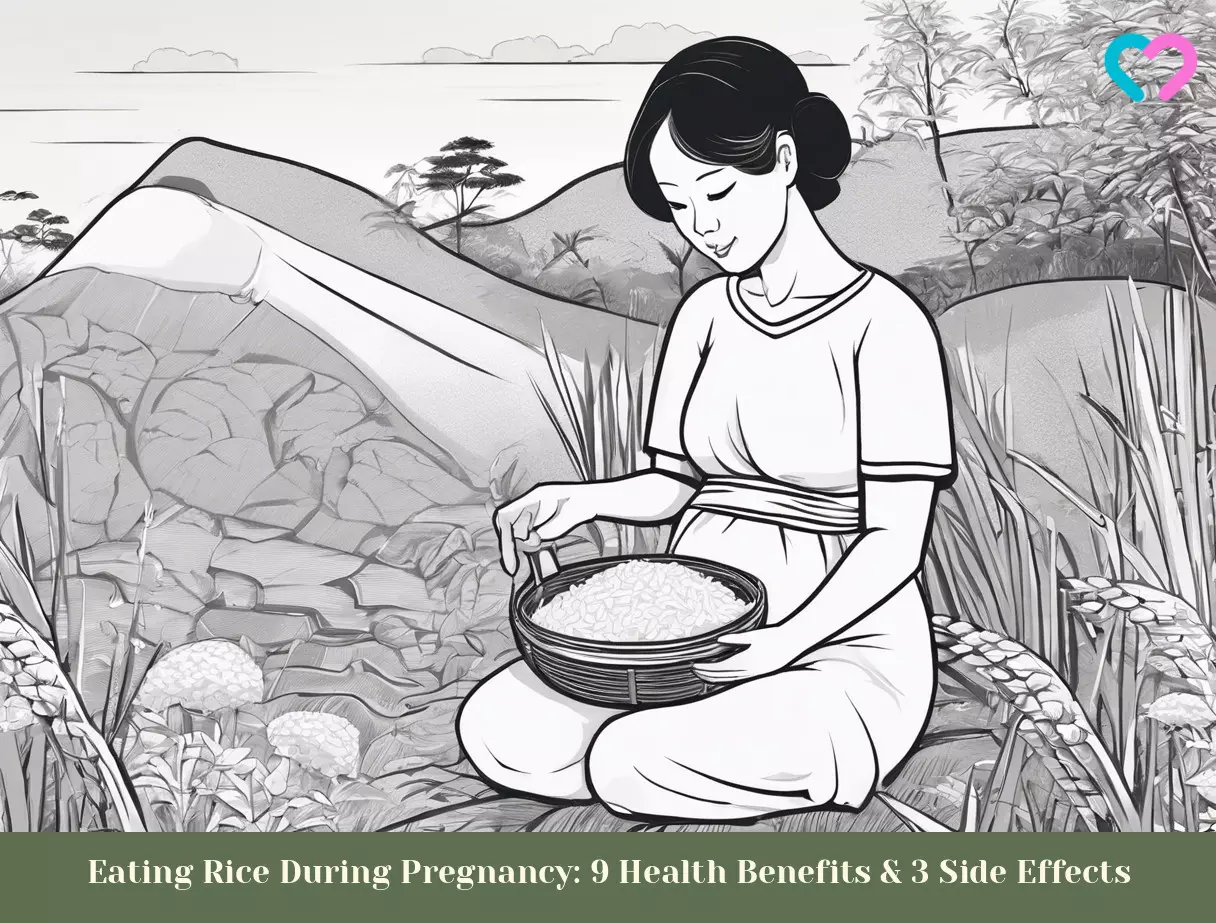
Image: Stable Diffusion/MomJunction Design Team
References
- Rice, brown, cooked, no added fat
https://fdc.nal.usda.gov/fdc-app.html#/food-details/2343898/nutrients - Rice, white, cooked, no added fat.
https://fdc.nal.usda.gov/fdc-app.html#/food-details/2343892/nutrients - Nutrition and athletic performance.
https://medlineplus.gov/ency/article/002458.htm - Swati Bhauso Patil and Md. Khalid Khan; (2011); Germinated brown rice as a value added rice product: A review.
https://www.ncbi.nlm.nih.gov/pmc/articles/PMC3551059/ - Diet During Pregnancy.
https://americanpregnancy.org/healthy-pregnancy/pregnancy-health-wellness/diet-during-pregnancy/ - Pregnancy Nutrition.
https://americanpregnancy.org/healthy-pregnancy/pregnancy-health-wellness/pregnancy-nutrition/ - WHAT IS A WHOLE GRAIN?
https://wholegrainscouncil.org/what-whole-grain - Have a healthy diet in pregnancy
https://www.nhs.uk/pregnancy/keeping-well/have-a-healthy-diet/ - Constipation during pregnancy.
https://www.pregnancybirthbaby.org.au/constipation-during-pregnancy - Constipation
https://www.ucsfhealth.org/education/constipation - Is There Arsenic in Rice? How Much Rice Is Too Much?
https://nutritionfacts.org/blog/how-much-arsenic-in-rice-is-too-much/ - Grain of the month: Brown rice
https://www.health.harvard.edu/heart-health/grain-of-the-month-brown-rice - Food preparation and safety.
https://www.pregnancybirthbaby.org.au/food-preparation-and-safety
Community Experiences
Join the conversation and become a part of our nurturing community! Share your stories, experiences, and insights to connect with fellow parents.
Read full bio of Reda Elmardi
- Sarah Whipkey is a registered dietitian nutritionist in Houston, Texas area. She specializes in plant-based nutrition and shares her knowledge and passion of whole plant foods with clients through her private practice, The Plant Potential. She did her BS in Nutrition and Dietetics from Texas State University.
 Sarah Whipkey is a registered dietitian nutritionist in Houston, Texas area. She specializes in plant-based nutrition and shares her knowledge and passion of whole plant foods with clients through her private practice, The Plant Potential. She did her BS in Nutrition and Dietetics from Texas State University.
Sarah Whipkey is a registered dietitian nutritionist in Houston, Texas area. She specializes in plant-based nutrition and shares her knowledge and passion of whole plant foods with clients through her private practice, The Plant Potential. She did her BS in Nutrition and Dietetics from Texas State University.
Read full bio of Ria Saha
Read full bio of Swati Patwal
Read full bio of Lorraine Teron






 Quick fact
Quick fact




